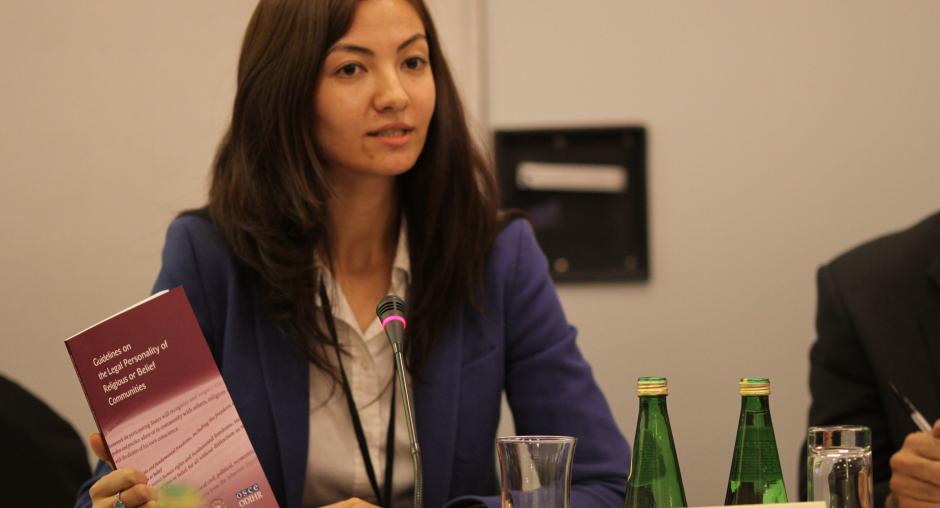OSCE participating States should implement ODIHR / Venice Commission guidelines on religious or belief communities, say participants at OSCE/ODIHR event

The negative effects of obstacles to accessing legal personality for religious or belief communities, both at the legislative and practical levels, were the focus of an event organized by the OSCE Office for Democratic Institutions and Human Rights (ODIHR) at the Human Dimension Implementation Meeting in Warsaw on 29 September 2015.
During the event, some 50 participants, representing civil society and state bodies, highlighted the important role that legislative and executive bodies play in ensuring that national legal frameworks for voluntary access to legal personality for religious or belief communities comply with international human rights standards.
“In an effort to clarify the obligations of participating States in the area of recognition of religious or belief communities, ODIHR, together with the Venice Commission, published the Guidelines on the Legal Personality of Religious or Belief Communities, which is available in English, Russian and Ukrainian,” said Kishan Manocha, ODIHR Senior Adviser on Freedom of Religion or Belief. “The Guidelines offer a wide range of good practices to assist those involved in drafting and applying legislation in this area.”
Andriy Yurash, Head of the Department on Religious Affairs and Nationalities at Ukraine’s Ministry of Culture, said: “All state officials have the obligation to make sure that all religious communities feel safe and comfortable in exercising their rights. The vital task of the state is to find the most appropriate balance between two priorities – between the formulation of a state policy on religion, which can be influenced by historical, cultural, political and other factors, and the right of all religious and belief communities to enjoy their religious freedom.”
The Guidelines focus on concrete measures to help OSCE participating States ensure that their national legal frameworks and practices comply with international standards and OSCE commitments in this area.
